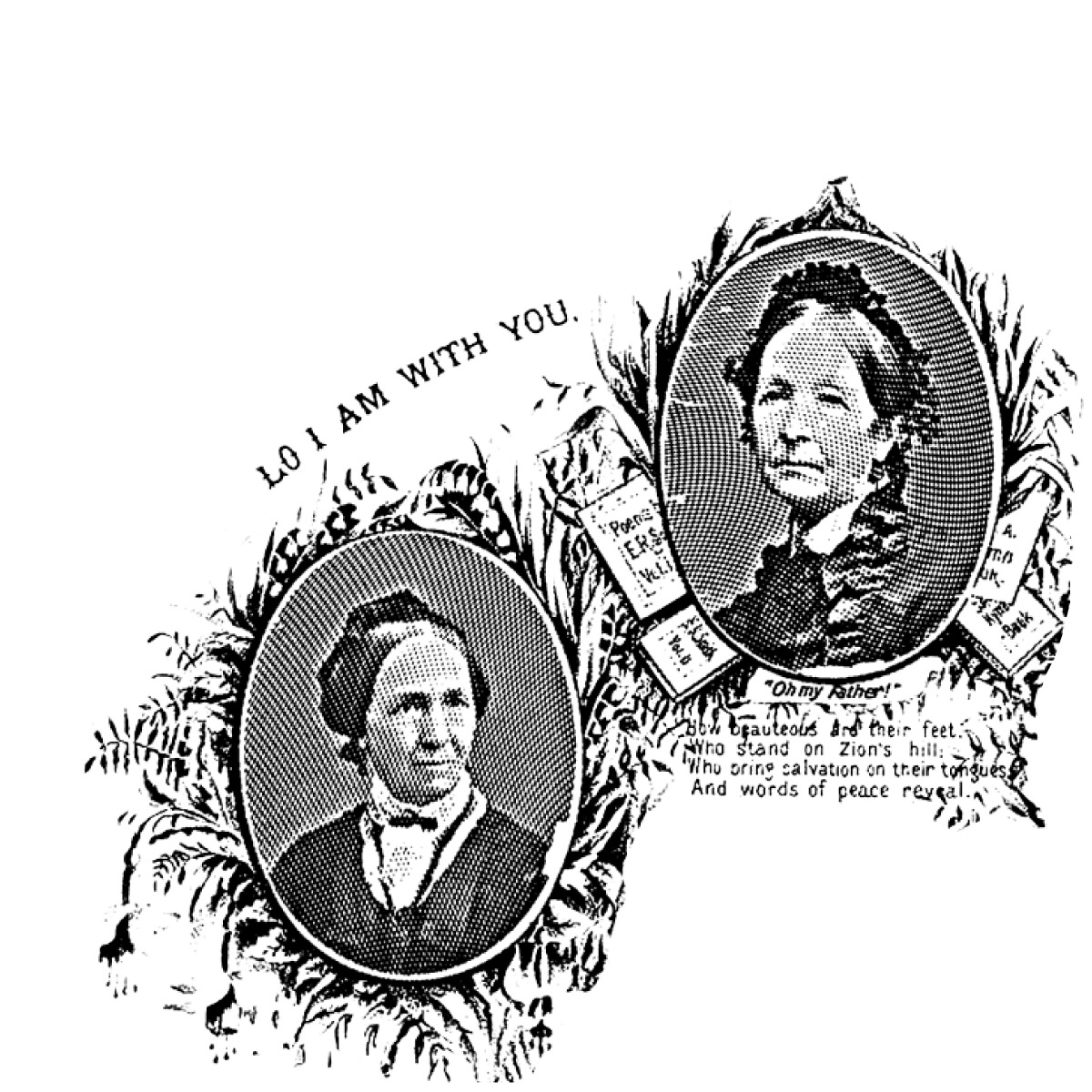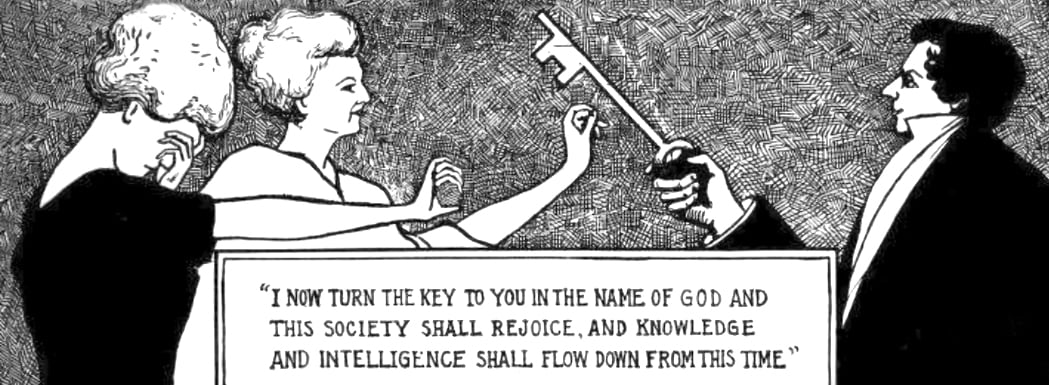Women and the Priesthood

What is the priesthood?
The Church defines the priesthood as "the power and authority of God" and how "God created and governs the heavens and the earth."[1]
In mortality, it is "power" delegated to "worthy male members of the Church" which "enables them to act in God’s name for the salvation of the human family."[2]
Can women hold the priesthood?
No. Someone who "holds" or "bears" the Priesthood holds an office in the Priesthood, such as Deacon or Apostle,[3] and can perform and officiate in ordinances.[4] These positions and responsibilities are only available to male members of the Church, starting at age 11.[5]
However, women can perform priesthood ordinances in the temple,[6] as well as participate as witnesses in certain ordinances, such as baptisms and sealings.[7]

Why can't women hold the priesthood?
It's unclear. President Gordon B. Hinckley[BIO] stated, "It was the Lord who designated that men in His Church should hold the priesthood."[8] In 2014, President M. Russell Ballard[BIO] cited this quote and added that "The Lord has not revealed why He has organized His Church as He has."[9]
Will women ever be allowed to hold the Priesthood?
Possibly, however when asked about women receiving the Priesthood in a 1998 interview, President Gordon B. Hinckley stated, "It would take another revelation to bring that about. I don't anticipate it."[10]
And in 2014, President Dallin H. Oaks[BIO] stated in General Conference that Church leaders "are not free to alter the divinely decreed pattern that only men will hold offices in the priesthood."[11]
Does this mean that women are limited in their opportunities for leadership and service in the Church?
Yes. The Church is "governed by the priesthood," which means that women are limited in their opportunities for leadership[12] and certain types of service,[13] though there are some leadership positions held exclusively by women.[14][15]
Are there any women involved in the governing councils of the Church?
Yes. Since 2015, each of the following governing councils of the Church has had a permanent appointment of a female general authority: the Family Executive Council, the Missionary Executive Council, and the Temple and Family History Executive Council.[16]
But isn't it true that even though women have some positions of authority and governance in the Church, ultimately, in theory, all final decisions are made by men?
Yes.
Doesn't that make women "second-class" citizens in the Church?
Some have argued this is the case.[17] Others have argued that the Church is empowering and helpful to women.[18]
Prominent Latter-Day Saint Women's Views on Women in the Church.
Name | Position | View |
Sheri Dew[BIO] | CEO of Deseret Book Former counselor in the Relief Society General Presidency |
|
Sharon Eubank[BIO] | First Counselor in the Relief Society General Presidency |
|
Reyna Aburto[BIO] | Second Counselor in the Relief Society General Presidency |
|
Barbara Morgan Gardner[BIO] | Associate professor of Church History and Doctrine at BYU |
|
Valerie Hudson[BIO] | Professor of political science at Texas A&M |
|
Do women in the Church want the priesthood?
In 2011 a national survey conducted by Pew Research indicated that 90% of active Latter-day Saint women do not agree that women should be ordained to the priesthood.[26] There are some Latter-day Saints, such as the "Ordain Women" organization, that have advocated for the ordination of women.[27]
Does the Church teach that men have the priesthood and women can have babies and that is somehow equal?
Kind of. The Church asserts the position that "women and men are equal, with different responsibilities,"[28] and that there are "eternal differences—with women being given many tremendous responsibilities of motherhood and sisterhood and men being given the tremendous responsibilities of fatherhood and the priesthood.”[29]
Wasn't there a female apostle in the primitive Church named Junia? Does that mean that she had the priesthood?
Junia is a woman mentioned in Romans 16 and is referred to as "prominent among the apostles" which has led some secular scholars to speculate[30] that she was one of the Twelve.[31]
However, in the New Testament the Greek word ἀποστόλος (apostolos)[32] can be translated multiple ways: as one of the twelve apostles[33] or as a messenger (or missionary),[34] and was often used interchangeably.[35] It is not always clear which definition Paul had in mind when he was writing Romans and what implications about priesthood roles or duties, if any, he intended to suggest with it.[36]
I heard that things were different in the early days of the Church—that women were ordained and gave blessings. Is that true?
Although Joseph Smith[BIO] used the term "ordain" when referring to Relief Society leadership,[37][38] there is no historical record indicating that he intended to ordain women to priesthood offices. And shortly after Joseph's death, Brigham Young stated that women can "never hold the keys of the priesthood apart from their husband."[39]
However, women gave non-priesthood blessings of healing by the laying on hands throughout the 19th century and into the early 20th century.[40]
Timeline of Women and Blessings of Healing
1838
1842
1876
1882
1892
1896
The editor of the Juvenile Instructor stated that "all members of the Church have a right to lay hands on the sick. . .even sisters can do this. . ."[46]
1901
1901
Relief Society general board minutes instruct women to "confirm" blessings rather than "seal" them.[48]
1917
1921
1924
In a meeting with the Relief Society general board, a mission president said that women were still performing washings and anointings before blessings in his mission "without any harm having come from it."[51]
1942
1946
1955
In the Improvement Era Joseph Fielding Smith quotes Joseph Smith saying that women may participate in blessings, but that these blessings are done by faith, not the priesthood.[54]
1956
In Joseph Fielding Smith's book, Doctrines of Salvation, it states that blessings from women are not "necessary or wise" and should only be administered by the priesthood.[55]
2020
In the 2020 General Handbook, Latter-day Saints are counseled against seeking spiritual healing outside of properly performed priesthood blessings.[56]
Does a woman receive the priesthood if she receives the second anointing?
Sort of. It depends on how you define "priesthood." Women who receive their second anointing are ordained as queens and priestesses.[57] But receiving the second anointing does not in itself authorize women to administer additional priesthood ordinances in this life.[58]
Do women have the priesthood and perform ordinances in the temple?
Yes and no. Joseph Fielding Smith said, "A person may have authority given to him, or a sister to her, to do certain things in the Church that are binding and absolutely necessary for our salvation, such as the work that our sisters do in the House of the Lord."[59] Recently this has been echoed by Church leaders and publications in a more general sense, but there have not been any statements about women having the priesthood.[60]
- Anna Marie
“If the church is true, all the doctrine and history should make sense to me, right? No reason to question. But in the scriptures, the pattern is clear- the Lord requires great faith of his children. We must each inquire of the Lord for answers. We walk by faith and not by sight.” - Barry W.
“Clearly a woman shares the priesthood in her family with her husband through temple marriage. That's the patriarchal priesthood. It's a foolish man who does not actively consult women regarding ecclesiastical decisions” - Jace
“I have no problem with women being ordained as long as it comes through a revelation revealed to the Prophet and Apostles. Most men in the church that I know feel the same way. Maybe it happens some day and maybe it doesn't. Either way, I'm ok with it.” - Carolyn
“Although questioning is healthy, faithful members should remember mortal beings are being directed by Heavenly Father and Jesus Christ. If we have confidence in our prophets, even though not understanding the “why’s”, we can feel confident they are obeying a higher power. Are we?”



 about this topic
about this topic